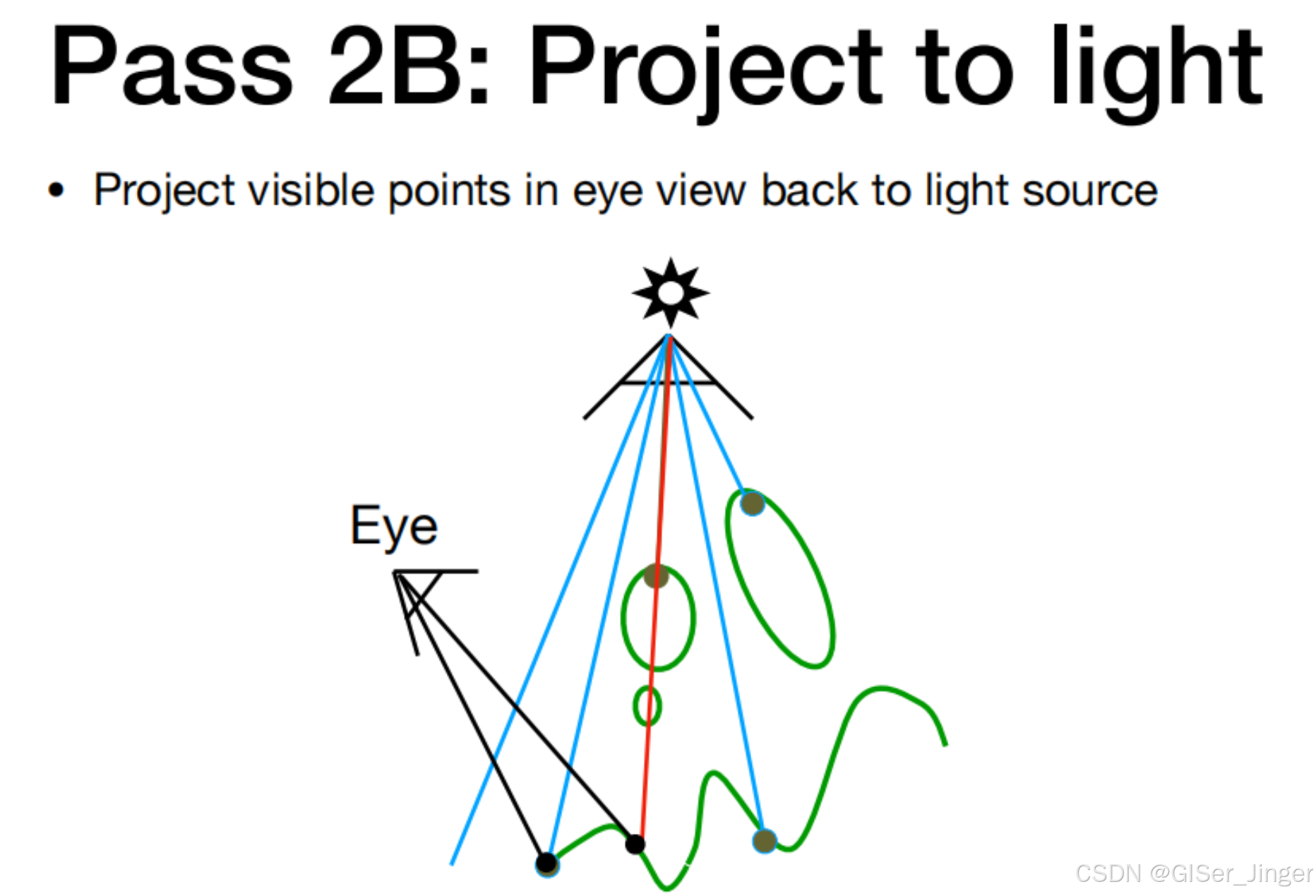代码
// Copyright 2021 ByteDance Inc.
//
// Licensed under the Apache License, Version 2.0 (the "License");
// you may not use this file except in compliance with the License.
// You may obtain a copy of the License at
//
// http://www.apache.org/licenses/LICENSE-2.0
//
// Unless required by applicable law or agreed to in writing, software
// distributed under the License is distributed on an "AS IS" BASIS,
// WITHOUT WARRANTIES OR CONDITIONS OF ANY KIND, either express or implied.
// See the License for the specific language governing permissions and
// limitations under the License.
package asynccache
import (
"fmt"
"log"
"sync"
"sync/atomic"
"time"
sf "golang.org/x/sync/singleflight"
)
// Options controls the behavior of AsyncCache.
type Options struct {
RefreshDuration time.Duration
Fetcher func(key string) (interface{}, error)
// If EnableExpire is true, ExpireDuration MUST be set.
EnableExpire bool
ExpireDuration time.Duration
ErrorHandler func(key string, err error)
ChangeHandler func(key string, oldData, newData interface{})
DeleteHandler func(key string, oldData interface{})
IsSame func(key string, oldData, newData interface{}) bool
ErrLogFunc func(str string)
}
// AsyncCache .
type AsyncCache interface {
// SetDefault sets the default value of given key if it is new to the cache.
// It is useful for cache warming up.
// Param val should not be nil.
SetDefault(key string, val interface{}) (exist bool)
// Get tries to fetch a value corresponding to the given key from the cache.
// If error occurs during the first time fetching, it will be cached until the
// sequential fetching triggered by the refresh goroutine succeed.
Get(key string) (val interface{}, err error)
// GetOrSet tries to fetch a value corresponding to the given key from the cache.
// If the key is not yet cached or error occurs, the default value will be set.
GetOrSet(key string, defaultVal interface{}) (val interface{})
// Dump dumps all cache entries.
// This will not cause expire to refresh.
Dump() map[string]interface{}
// DeleteIf deletes cached entries that match the `shouldDelete` predicate.
DeleteIf(shouldDelete func(key string) bool)
// Close closes the async cache.
// This should be called when the cache is no longer needed, or may lead to resource leak.
Close()
}
// asyncCache .
type asyncCache struct {
sfg sf.Group
opt Options
data sync.Map
}
type tickerType int
const (
refreshTicker tickerType = iota
expireTicker
)
type sharedTicker struct {
sync.Mutex
started bool
stopChan chan bool
ticker *time.Ticker
caches map[*asyncCache]struct{}
}
var (
// 共用 ticker
refreshTickerMap, expireTickerMap sync.Map
)
type entry struct {
val atomic.Value
expire int32 // 0 means useful, 1 will expire
err Error
}
func (e *entry) Store(x interface{}, err error) {
if x != nil {
e.val.Store(x)
} else {
e.val = atomic.Value{}
}
e.err.Store(err)
}
func (e *entry) Touch() {
atomic.StoreInt32(&e.expire, 0)
}
// NewAsyncCache creates an AsyncCache.
func NewAsyncCache(opt Options) AsyncCache {
c := &asyncCache{
sfg: sf.Group{},
opt: opt,
}
if c.opt.ErrLogFunc == nil {
c.opt.ErrLogFunc = func(str string) {
log.Println(str)
}
}
if c.opt.EnableExpire {
if c.opt.ExpireDuration == 0 {
panic("asynccache: invalid ExpireDuration")
}
ti, _ := expireTickerMap.LoadOrStore(c.opt.ExpireDuration,
&sharedTicker{caches: make(map[*asyncCache]struct{}), stopChan: make(chan bool, 1)})
et := ti.(*sharedTicker)
et.Lock()
et.caches[c] = struct{}{}
if !et.started {
et.started = true
et.ticker = time.NewTicker(c.opt.ExpireDuration)
go et.tick(et.ticker, expireTicker)
}
et.Unlock()
}
ti, _ := refreshTickerMap.LoadOrStore(c.opt.RefreshDuration,
&sharedTicker{caches: make(map[*asyncCache]struct{}), stopChan: make(chan bool, 1)})
rt := ti.(*sharedTicker)
rt.Lock()
rt.caches[c] = struct{}{}
if !rt.started {
rt.started = true
rt.ticker = time.NewTicker(c.opt.RefreshDuration)
go rt.tick(rt.ticker, refreshTicker)
}
rt.Unlock()
return c
}
// SetDefault sets the default value of given key if it is new to the cache.
func (c *asyncCache) SetDefault(key string, val interface{}) bool {
ety := &entry{}
ety.Store(val, nil)
actual, exist := c.data.LoadOrStore(key, ety)
if exist {
actual.(*entry).Touch()
}
return exist
}
// Get tries to fetch a value corresponding to the given key from the cache.
// If error occurs during in the first time fetching, it will be cached until the
// sequential fetchings triggered by the refresh goroutine succeed.
func (c *asyncCache) Get(key string) (val interface{}, err error) {
var ok bool
val, ok = c.data.Load(key)
if ok {
e := val.(*entry)
e.Touch()
return e.val.Load(), e.err.Load()
}
val, err, _ = c.sfg.Do(key, func() (v interface{}, e error) {
v, e = c.opt.Fetcher(key)
ety := &entry{}
ety.Store(v, e)
c.data.Store(key, ety)
return
})
return
}
// GetOrSet tries to fetch a value corresponding to the given key from the cache.
// If the key is not yet cached or fetching failed, the default value will be set.
func (c *asyncCache) GetOrSet(key string, def interface{}) (val interface{}) {
if v, ok := c.data.Load(key); ok {
e := v.(*entry)
if e.err.Load() != nil {
ety := &entry{}
ety.Store(def, nil)
c.data.Store(key, ety)
return def
}
e.Touch()
return e.val.Load()
}
val, _, _ = c.sfg.Do(key, func() (interface{}, error) {
v, e := c.opt.Fetcher(key)
if e != nil {
v = def
}
ety := &entry{}
ety.Store(v, nil)
c.data.Store(key, ety)
return v, nil
})
return
}
// Dump dumps all cached entries.
func (c *asyncCache) Dump() map[string]interface{} {
data := make(map[string]interface{})
c.data.Range(func(key, val interface{}) bool {
k, ok := key.(string)
if !ok {
c.opt.ErrLogFunc(fmt.Sprintf("invalid key: %v, type: %T is not string", k, k))
c.data.Delete(key)
return true
}
data[k] = val.(*entry).val.Load()
return true
})
return data
}
// DeleteIf deletes cached entries that match the `shouldDelete` predicate.
func (c *asyncCache) DeleteIf(shouldDelete func(key string) bool) {
c.data.Range(func(key, value interface{}) bool {
s := key.(string)
if shouldDelete(s) {
if c.opt.DeleteHandler != nil {
go c.opt.DeleteHandler(s, value)
}
c.data.Delete(key)
}
return true
})
}
// Close stops the background goroutine.
func (c *asyncCache) Close() {
// close refresh ticker
ti, _ := refreshTickerMap.Load(c.opt.RefreshDuration)
rt := ti.(*sharedTicker)
rt.Lock()
delete(rt.caches, c)
if len(rt.caches) == 0 {
rt.stopChan <- true
rt.started = false
}
rt.Unlock()
if c.opt.EnableExpire {
// close expire ticker
ti, _ := expireTickerMap.Load(c.opt.ExpireDuration)
et := ti.(*sharedTicker)
et.Lock()
delete(et.caches, c)
if len(et.caches) == 0 {
et.stopChan <- true
et.started = false
}
et.Unlock()
}
}
// tick .
// pass ticker but not use t.ticker directly is to ignore race.
func (t *sharedTicker) tick(ticker *time.Ticker, tt tickerType) {
var wg sync.WaitGroup
defer ticker.Stop()
for {
select {
case <-ticker.C:
t.Lock()
for c := range t.caches {
wg.Add(1)
go func(c *asyncCache) {
defer wg.Done()
if tt == expireTicker {
c.expire()
} else {
c.refresh()
}
}(c)
}
wg.Wait()
t.Unlock()
case stop := <-t.stopChan:
if stop {
return
}
}
}
}
func (c *asyncCache) expire() {
c.data.Range(func(key, value interface{}) bool {
k, ok := key.(string)
if !ok {
c.opt.ErrLogFunc(fmt.Sprintf("invalid key: %v, type: %T is not string", k, k))
c.data.Delete(key)
return true
}
e, ok := value.(*entry)
if !ok {
c.opt.ErrLogFunc(fmt.Sprintf("invalid key: %v, type: %T is not entry", k, value))
c.data.Delete(key)
return true
}
if !atomic.CompareAndSwapInt32(&e.expire, 0, 1) {
if c.opt.DeleteHandler != nil {
go c.opt.DeleteHandler(k, value)
}
c.data.Delete(key)
}
return true
})
}
func (c *asyncCache) refresh() {
c.data.Range(func(key, value interface{}) bool {
k, ok := key.(string)
if !ok {
c.opt.ErrLogFunc(fmt.Sprintf("invalid key: %v, type: %T is not string", k, k))
c.data.Delete(key)
return true
}
e, ok := value.(*entry)
if !ok {
c.opt.ErrLogFunc(fmt.Sprintf("invalid key: %v, type: %T is not entry", k, value))
c.data.Delete(key)
return true
}
newVal, err := c.opt.Fetcher(k)
if err != nil {
if c.opt.ErrorHandler != nil {
go c.opt.ErrorHandler(k, err)
}
if e.err.Load() != nil {
e.err.Store(err)
}
return true
}
if c.opt.IsSame != nil && !c.opt.IsSame(k, e.val.Load(), newVal) {
if c.opt.ChangeHandler != nil {
go c.opt.ChangeHandler(k, e.val.Load(), newVal)
}
}
e.Store(newVal, err)
return true
})
}
流程图
其中的refreshTickerMap, expireTickerMap存放的是每个特定的刷新时间/过期时间对应的sharedTicker
每个sharedTicker负责多个相同刷新时间/过期时间的缓存池的更新/过期操作
测试代码
package main
import (
"asynccache/asynccache"
"fmt"
"log"
"time"
)
// 模拟一个简单的数据获取函数
func simpleFetcher(key string) (interface{}, error) {
log.Printf("Fetching data for key: %s\n", key)
time.Sleep(500 * time.Millisecond) // 模拟数据获取的延迟
return fmt.Sprintf("value_for_%s", key), nil
}
// 打印缓存中所有的数据观察
func showAllCacheData(cache asynccache.AsyncCache) {
cacheData := cache.Dump() // 导出cache数据
// cacheData map[string]interface{} 类型为interface{},代表任意类型
for k, v := range cacheData {
// %s代表匹配字符串,%+v代表构造任意类型
log.Printf("Fetching data for key: %s, value: %+v", k, v)
}
}
func main() {
// 创建一个 AsyncCache 实例
cache := asynccache.NewAsyncCache(asynccache.Options{
RefreshDuration: 2 * time.Second, // 每2秒刷新一次
Fetcher: simpleFetcher,
EnableExpire: true,
ExpireDuration: 5 * time.Second, // 每5秒过期一次
ErrorHandler: func(key string, err error) {
log.Printf("Error fetching key %s: %v\n", key, err)
},
ChangeHandler: func(key string, oldData, newData interface{}) {
log.Printf("Key %s changed from %v to %v\n", key, oldData, newData)
},
DeleteHandler: func(key string, oldData interface{}) {
log.Printf("Key %s expired with value %v\n", key, oldData)
},
})
// 设置默认值
cache.SetDefault("key1", "default_value_for_key1")
// 观察缓存数据
showAllCacheData(cache)
// 获取值
val, err := cache.Get("key1")
if err != nil {
log.Printf("Error getting key1: %v\n", err)
} else {
log.Printf("Got value for key1: %v\n", val)
}
// 使用 GetOrSet
val = cache.GetOrSet("key2", "default_value_for_key2")
log.Printf("Got value for key2: %v\n", val)
// 等待刷新和过期
time.Sleep(6 * time.Second)
// 再次获取值
val, err = cache.Get("key1")
if err != nil {
log.Printf("Error getting key1 after refresh: %v\n", err)
} else {
log.Printf("Got value for key1 after refresh: %v\n", val)
}
// 删除特定的缓存项
cache.DeleteIf(func(key string) bool {
return key == "key2"
})
// 关闭缓存
cache.Close()
// 尝试获取值,应该会失败
val, err = cache.Get("key1")
if err != nil {
log.Printf("Error getting key1 after close: %v\n", err)
} else {
log.Printf("Got value for key1 after close: %v\n", val)
}
}



















